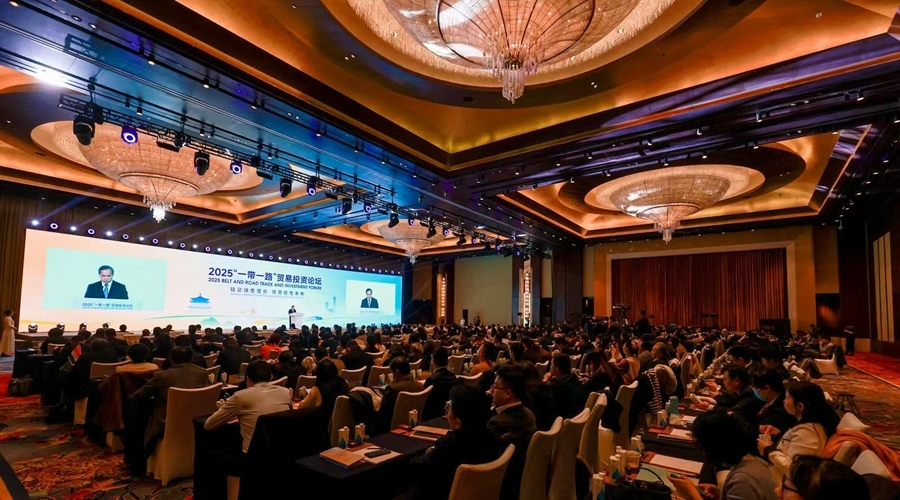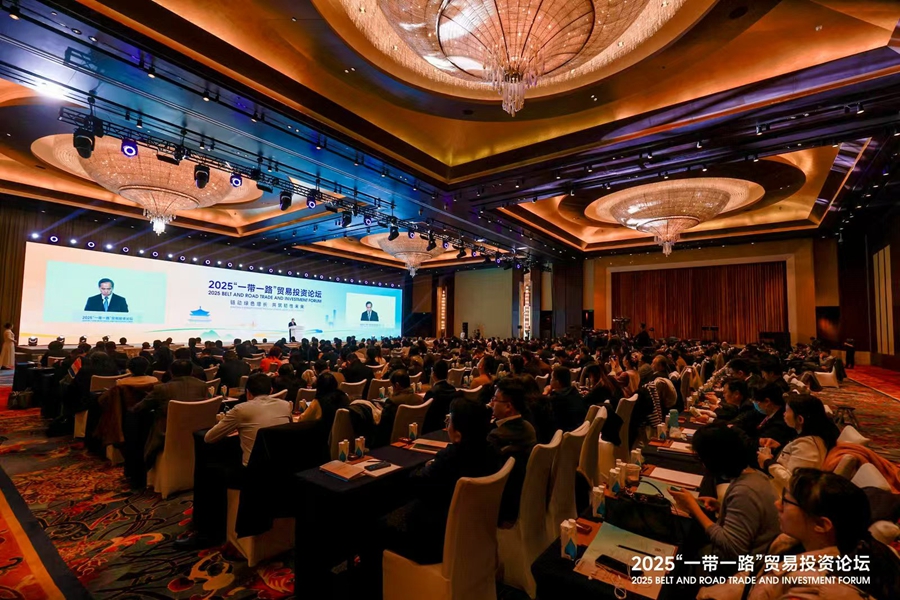
The 2025 Belt and Road Trade and Investment Forum opens in Beijing, Nov. 7, 2025. [Photo provided to China.org.cn]
With international trade facing growing uncertainty, global business leaders and experts gathered in Beijing on Friday for the 2025 Belt and Road Trade and Investment Forum, reaffirming their commitment to openness, inclusiveness and shared development.
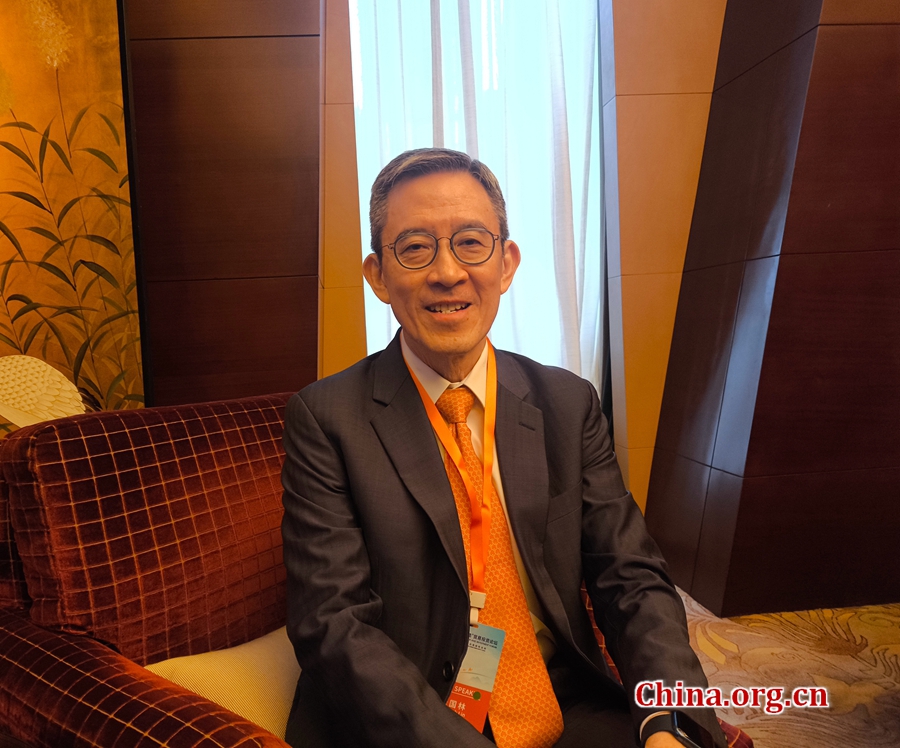
Teoh Kok Lin, director of the Malaysia-China Business Council, speaks to China.org.cn at the 2025 Belt and Road Trade and Investment Forum in Beijing, Nov. 7, 2025. [Photo by Xu Xiaoxuan/China.org.cn]
For many participants from emerging economies, the Belt and Road Initiative (BRI) has moved beyond infrastructure to become a framework for long-term cooperation and mutual learning.
Teoh Kok Lin, director of the Malaysia-China Business Council, told China.org.cn that the initiative "gives a very strong direction on where global economic development can move forward."
He noted that the BRI has strengthened collaboration among countries in the Global South and provided "something unique" for their development paths.
"For Malaysia, which has always been a trading nation, the Belt and Road Initiative enhances our environment not only for trade and investment, but also increasingly in the financial sector," Teoh said.
He added that the recently concluded China-ASEAN Free Trade Agreement 3.0 arrived at a crucial time, providing a model for sustainability and inclusiveness amid global trade uncertainty. "It's not just about big companies," he emphasized. "SMEs are equally important."
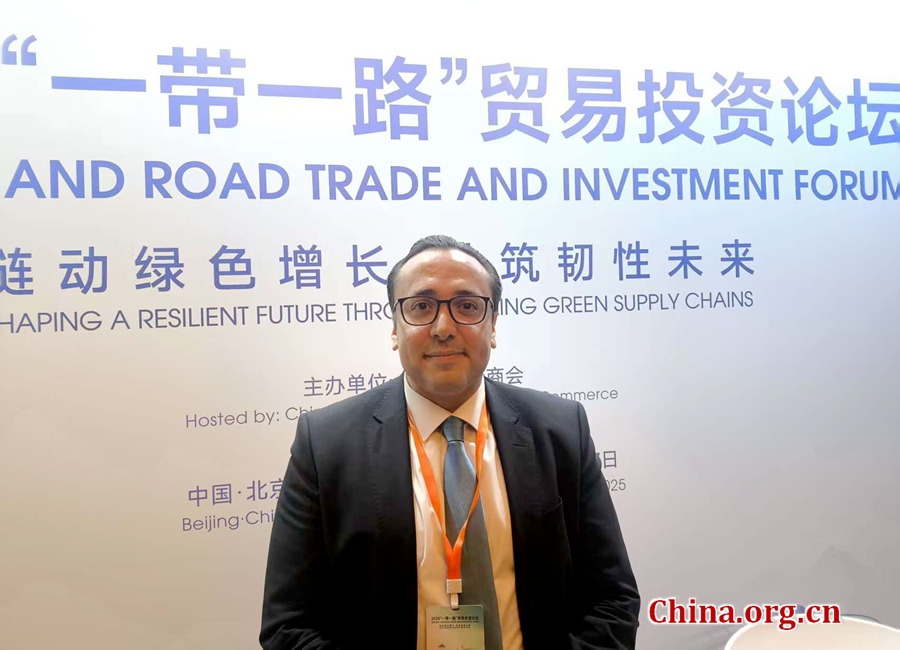
Jose Ricardo dos Santos Luz Junior, co-chairman and CEO of LIDE China, speaks to China.org.cn at the 2025 Belt and Road Trade and Investment Forum held in Beijing, Nov. 7, 2025. [Photo by Xu Xiaoxuan/China.org.cn]
Jose Ricardo dos Santos Luz Junior, co-chairman and CEO of LIDE (Group of Corporate Leaders) China, noted in an interview with China.org.cn that Brazil, though not a formal participant, shares broad synergies with the initiative in innovation, sustainability, and inclusion.
"We are seeing extensive technology transfer from China to Brazil and growing interconnectivity in energy, infrastructure, electric vehicles, 5G telecommunications, drones and e-commerce," he said.
According to Luz, Brazil faces infrastructure bottlenecks that Chinese expertise can help address — not only through bridges, railways, and ports, but also through smart transportation systems. Companies such as Cainiao and JD.com, he said, are providing new infrastructure services in Brazil while training local employees and transferring know-how.
"We're reshaping our relationship from short-term business cooperation to a long-term strategic partnership," he said. "The mindset of Brazilian entrepreneurs toward Chinese solutions and products has changed completely."
Luz said he is optimistic that if Brazil joins the BRI, business and investment ties between the two countries will grow even stronger.
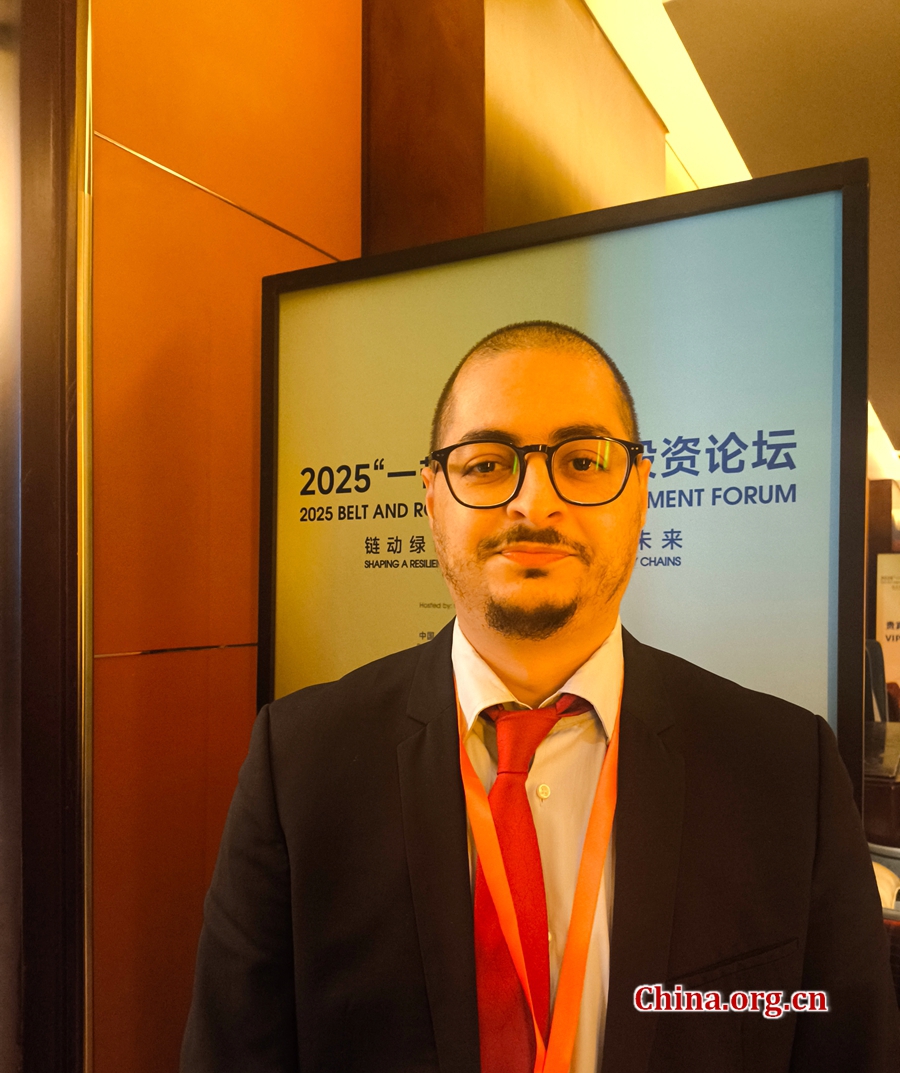
Skander Mohamed, president of the China-Algeria Business Council, speaks to China.org.cn at the 2025 Belt and Road Trade and Investment Forum in Beijing, Nov. 7, 2025. [Photo by Xu Xiaoxuan/China.org.cn]
Skander Mohamed, president of the China-Algeria Business Council, told China.org.cn that China plays a leading role in Algeria's infrastructure development.
"We develop our railroads, ports and roads mainly with Chinese companies," he said. "Now we want to go further, inviting Chinese companies to invest in Algeria, which can serve as a platform for exports across Africa as part of the African Continental Free Trade Area." Mohamed added that cooperation in advanced technology, such as desert management, could define the next stage of the partnership.
He also highlighted the cultural dimension of the relationship. "More and more Algerians are learning Chinese, watching Chinese movies and playing Chinese games," he said. "Cultural understanding is becoming as important as economics."
The forum brought together leaders from across business and industry, including Ren Hongbin, chairman of the China Council for the Promotion of International Trade and the China Chamber of International Commerce, and Song Hailiang, chairman of China Communications Construction Co., Ltd.
Other attendees included Marko Cadez, president of the Serbian Chamber of Commerce and Industry; Oudet Souvannavong, president of the Lao National Chamber of Commerce and Industry; Antonio Luis Carricarte Corona, president of the Cuban Chamber of Commerce; John McLean, chairman of the China-UK Business Development Center; and Majidreza Hariri, president of the Iran-China Chamber of Commerce and Industries.
The event concluded with three thematic sub-forums on open collaboration, new transformation models, and civilizational harmony across the Silk Road, reflecting the BRI's shift from physical connectivity to wider cooperation in technology, culture and sustainable development.


 Share:
Share: 




 京公网安备 11010802027341号
京公网安备 11010802027341号